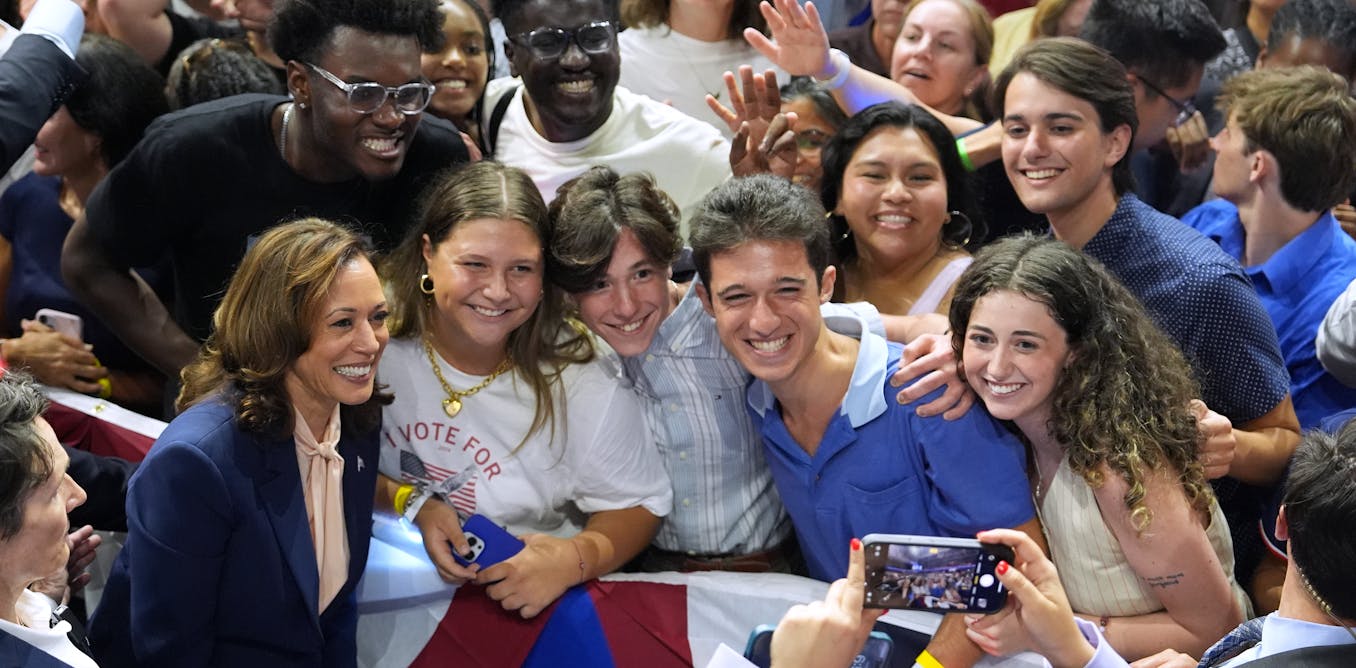Politics
Assassination is always unlawful − regardless of who is killed and on whose orders
Assassination is a particular form of murder. Regardless of who carries out the act, on whose orders or why, it is always unlawful.
This is the reason Vadim Krasikov was languishing behind bars in Germany prior to being released on Aug. 1, 2024, as part of a historic prisoner exchange.
Krasikov was serving a life sentence for killing exiled Chechen separatist Zelimkhan Khangoshvili in a Berlin park in 2019.
The German court that sentenced him found that he was carrying out the Kremlin’s orders; his victim had fought Russian forces in the Chechen wars and was suspected of terrorist attacks in Moscow. But neither of these factors provide legal justification for the killing.
The same is true in the case of Ismail Haniyeh, a Hamas political leader. He was killed on July 31, 2024, while in Tehran at the invitation of the Iranian government. The Israeli government, which is widely believed to be behind the killing, has repeatedly expressed a willingness to hunt down Hamas leadership around the world following the group’s deadly attack on Oct. 7, 2023. Israel has carried out many such assassinations in Iran, Lebanon and elsewhere over the years.
Despite these and other international cases, the term “assassination” is not defined under international law. Legal scholars like me rely on standard dictionary definitions where assassination is defined as “murder by sudden or secret attack often for political reasons.” But treaties and other international law do make clear that killing for political reasons by sudden or secret attack is unlawful.
The most important treaty on this question is the International Covenant on Civil and Political Rights – adopted in 1966 by the United Nations and binding today on 174 states, including Russia, Israel and the United States. The covenant affirms: “Every human being has the inherent right to life. This right shall be protected by law. No one shall be arbitrarily deprived of his life.”
Treacherous acts
This does not mean that deliberate killing can never be justified. International law contains rules that determine when it is permissible to use deadly force.
In peacetime, it is lawful for police to use lethal force to save lives in immediate danger. Officers killed the man who shot at Donald Trump, for example, to prevent the gunman from shooting again, as lives were in immediate danger.
The use of military force against another state is regulated under the United Nations Charter. The Charter prohibits all uses of force, unless authorized by the U.N. Security Council or in a case of self-defense. The charter allows a state to use force in individual or collective self-defense “if an armed attack occurs” until the Security Council can act.
The U.N.’s International Court of Justice has further clarified that even when a state has the right of self-defense, military action in response must be necessary, proportionate and aimed at a sovereign state responsible for the initial armed attack. The court has repeated these principles in multiple decisions, most comprehensively in a case brought by Iran following lethal U.S. attacks on its oil platforms in the Persian Gulf.
Once an armed coNFLict has begun, parties to the fighting have the right to use lethal force to defeat the adversary. International humanitarian law permits intentional killing of enemy fighters within legally defined armed coNFLict hostilities. Even then, no one may be singled out for killing based on what they did in the past. And civilians not participating in the fighting may never be intentionally targeted.

Recent international decisions support the importance of the concept of restricting the killing of fighters to within active zones of hostilities. Outside such areas, the peacetime human right to life applies. The European Court of Human Rights has emphasized this point in a series of rulings, most recently in early 2021.
These decisions contradict an older view held by some in the U.S. military that political or military leaders of a wartime adversary may be killed wherever they are found.
As a political leader of a party at war with Israel in Gaza, Haniyeh might fit this older interpretation. However, it still would not extend to killing “treacherously or perfidiously,” as laid out in the binding regulations annexed to Hague Convention IV of 1907. To kill treacherously or perfidiously means to kill someone who has no expectation of being in danger of death. For example, a soldier who falsely raises a white flag of surrender to lure an enemy in close enough to kill them would be guilty of killing treacherously.
Haniyeh had such an expectation of safety in Tehran, and as such his killing can be seen as treacherous.
A double standard
All principles on the use of lethal force under international law rule out assassination. And yet, countries including Israel, Russia and the U.S. persist in using it. A few others – France, India, North Korea, Saudi Arabia and the United Kingdom – have used it in a few infamous, high-profile cases.
Israel has acknowledged responsibility for assassinations dating to even before its founding.
The U.S. has joined the rest of the world in criticizing these killings. In 1988, for example, Israel assassinated a PLO leader named Khalil al-Wazir in Tunisia. The U.N. Security Council condemned the operation in a resolution that the U.S. refused to veto.
To try to mollify critics, Israel began referring in 2000 to its practice of assassination as “targeted killings.”
The term makes it sound more like the legitimate killing in wartime. In 2001, U.S. Ambassador to Israel Martin Indyk rejected Israel’s attempt to legitimize assassination when he said on Israeli television: “The United States government is very clearly on the record as against targeted assassinations. They are extrajudicial killings, and we do not support that.”
Then the Sept. 11 attacks occurred and the U.S. itself adopted the practice of targeted killing. The first known case was carried out by the CIA against six suspected members of al-Qaida in Yemen in November 2002. The killings were condemned as unlawful by a U.N. human rights expert soon after.
Yet, U.S. killings with drones and other means have continued to this day. All the while, the U.S. has consistently condemned Russian assassinations. What many international law experts, including me, see is a U.S. double standard when it comes to the use of lethal force, including its use in assassination.
While efforts may have been made to mount a defense of assassinations such as that of Hamas’ Haniyeh, there is a simple truth: Lethal force is highly restricted, and assassination is never legal.
-

 Politics3h ago
Politics3h agoTrump Again Decries Two Gold Medal Olympians, Falsely Labeling the Female Boxers as Men
-

 Politics3h ago
Politics3h agoYour Questions About the Democratic National Convention, Answered
-

 Politics4h ago
Politics4h agoNetworking Pick of the Week: RI Small Business Coalition in Providence
-

 Politics19h ago
Politics19h agoHow Kamala Harris Took ‘Freedom’ Back from the GOP
-

 Politics19h ago
Politics19h agoThe Former Mayor of San Francisco Is Threatening to Sue Donald Trump. Here’s Why
-

 Politics1d ago
Politics1d agoBreaking Down the 2024 Election Calendar
-

 Politics1d ago
Politics1d agoFormer D.C. Employee Convicted of Manslaughter in Fatal Shooting of 13-Year-Old
-

 Politics1d ago
Politics1d agoRhode Island Weather for August 18, 2024 – Jack Donnelly





















